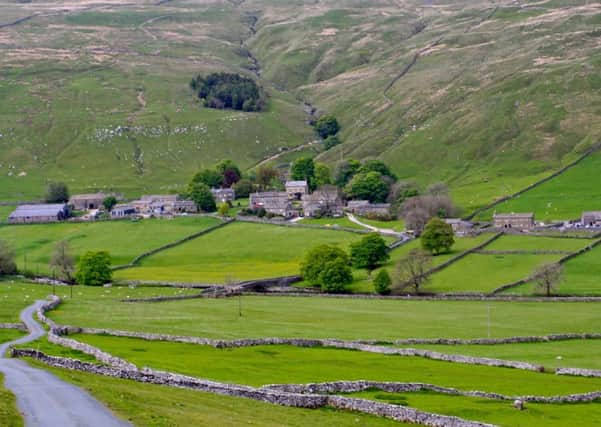Two-year wait for farmers due EU support payments


Although “99.9 per cent” of farmers have now received their full Basic Payment Scheme (BPS) settlement from the 2015 payment round, dozens of farmers remain out of pocket, according to an admission by Lord Gardiner.
But there is hope that any farmers of common land - which tends to be rough grazing land in the uplands - among those left in limbo will now have their full financial entitlement met, after a successful legal challenge.
Advertisement
Hide AdAdvertisement
Hide AdAccording to the National Farmers’ Union (NFU), common land farmers can expect top-up payments “totalling millions of pounds” in the coming days following a legal ruling in a case supported by the union and first brought by the Minchinhampton and Rodborough Commoners in Gloucestershire in 2014.
Previously, the Rural Payments Agency (RPA) denied ‘commoners’ the chance to claim for all the farmed area of a common, reserving proportions of the land for other commons right holders who were often not farmers - but with the restriction now lifted active common land graziers can expect a dividend.
Yorkshire and the North East’s regional NFU team anticipates that the biggest impact of the ruling will be in the North Pennines, where historic common land arrangements are commonplace.
Peter Gardiner, for the Minchinhampton and Rodborough Commoners, said: “The extra money will make a big difference to the management of our commons and we hope it will have a similar effect elsewhere.”
Advertisement
Hide AdAdvertisement
Hide AdTrevor Foss, chairman of the NFU’s legal assistance scheme, added: “It is great news that our members are finally going to be paid after a long battle.”
The RPA has always maintained it understands the importance of farm payments and that it has tried to get money into bank accounts as quickly as possible.
Many of the problems with farmers receiving timely and accurate payments have been associated with the botched launch of a costly new IT system as part of a move to encourage more farmers to apply for funds online. The new system was set up to serve a revised EU Common Agricultural Policy but led to more than 12,500 farmers waiting for payments worth a total of £300m by as late as last March.
The RPA told The Yorkshire Post in March this year that almost all eligible farmers had since received a payment on their 2015 claim, apart from “exceptional cases” such as those that could not be paid for legal reasons.
Advertisement
Hide AdAdvertisement
Hide AdBut after learning of cases in North Yorkshire about farmers still awaiting payments, the Baroness of Pickering, Anne McIntosh, tabled a written parliamentary question to Lord Gardiner, parliamentary under secretary for rural affairs and biosecurity, to ask when the RPA would finally pay all outstanding amounts.
The peer replied: “As at close of business on 17 July, 99.9 per cent of customers have received their full BPS 2015 payment.
“There are 60 farmers still to receive their payment, 58 of which are currently held for legal reasons - such as probate - and two still need to be processed.
“The RPA continues to focus on the completion of those outstanding and dealing with any new queries on BPS 2015.”
Advertisement
Hide AdAdvertisement
Hide AdBaroness McIntosh said she was delighted by the Minchinhampton ruling, saying: “It is totally unacceptable that payments have been delayed sometimes for years after the claim was actually made.
“It is also bad practice to have an intermediary or agent in these claims. Often the landowner has conflicting interests to the others who actually farm on the common land as opposed to other non-farming enterprises such as shooting.
“Going forward it is absolutely essential that farmers be paid who actually farm on the common land and should be paid directly without any intermediary and that payments be made only to all those who are actually and actively farming the land. That would end many of these disputes and it is a matter of regret that this had to be settled in court, albeit a welcome result.”